Fleurs du Mal Magazine


Or see the index
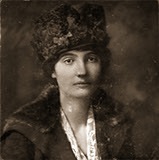
The Actor-Soldier
On the grass I m lying,
My blanket is the sky ;
This feeling is called dying.
No one will testify
They saw me suffer this ;
There s no one passing by.
The wonder of it is,
I m by myself at last
With plain realities.
No one is here to cast
A part for me to play ;
My term of life is past.
No one is here to see
How I can meet and take
This end ; how gallantly
Though the ice that binds a lake
Must weigh less heavily
Than Death to my soul awake.
Gladys Cromwell
(1885-1919)
The Actor-Soldier
fleursdumal.nl magazine
More in: Archive C-D, Cromwell, Gladys, Gladys Cromwell
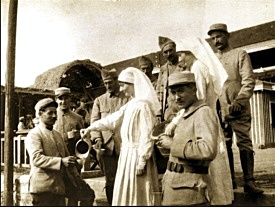
The Poet
O tell me, tell me,
How did you drain
Your song to drops
Clear as rain?
What labor, what sorrow,
What sacrifice,
Crystal d your song
To beryl ice?
What burning gladness
Warmed it again
To a vapor sweet,
Clear as rain?
O tell me, tell me,
Melody s price
Is it work, is it pain,
Is it sacrifice?
Gladys Cromwell
(1885-1919)
The Poet
fleursdumal.nl magazine
More in: *War Poetry Archive, Archive C-D, Cromwell, Gladys, Gladys Cromwell
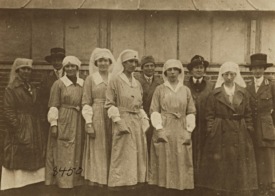
Star Song
There are twisted roots that grow
Even from a fragile white anemone.
But a star has no roots; to and fro
It floats in the light of the sky, like a water-lily,
And fades on the blue flood of day.
A star has no roots to hold it,
No living lonely entity to lose.
Floods of dim radiance fold it;
Night and day their silent aura transfuse;
But no change a star can bruise.
A star is adrift and free.
When day comes, it floats into space and complies;
Like a spirit quietly,
Like a spirit, amazed in a wider paradise
At mortal tears and sighs.
Gladys Cromwell
(1885-1919)
Star Song
fleursdumal.nl magazine
More in: Archive C-D, Cromwell, Gladys, Gladys Cromwell
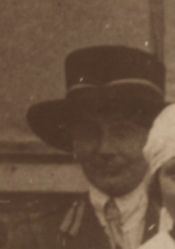
The Mould
No doubt this active will,
So bravely steeped in sun,
This will has vanquished Death
And foiled oblivion.
But this indifferent clay,
This fine experienced hand,
So quiet, and these thoughts
That all unfinished stand,
Feel death as though it were
A shadowy caress;
And win and wear a frail
Archaic wistfulness.
Gladys Cromwell
(1885-1919)
The Mould
fleursdumal.nl magazine
More in: Archive C-D, CLASSIC POETRY, Cromwell, Gladys, Gladys Cromwell
De Provincie West-Vlaanderen herdenkt van 2014 tot en met 2018 op culturele wijze 100 jaar Groote Oorlog. Deze eigentijdse, toekomstgerichte en multidisciplinaire herdenking kreeg de naam ‘GoneWest’.
GoneWest verbindt talloze levensverhalen met gedegen historisch besef en ontsluit deze kleine en grote verhalen via muziek-, dans-, theaterevenementen, literatuur en beeldende kunst.
“…because his brother had gone west, raved at the bleeding war; his rampant grief moaned, shouted, sobbed, and choked, while he was kneeling half-naked on the floor. In my belief such men have lost all patriotic feeling.” Siegfried Sassoon
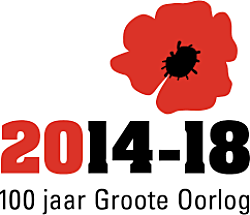 ‘To go west’, een Engelse uitdrukking, die zoveel betekent als sterven, kreeg tijdens de Eerste Wereldoorlog een bijkomende betekenis mee. Het ten westen gaan van de doden, met de ondergaande zon mee, werd aan het geallieerde front meer dan zomaar een metafoor. Britten, Fransen en Belgen bezetten dan ook het westelijke deel van dat Westelijke Front, dat van het noorden naar het zuiden West-Vlaanderen en Noord-Frankrijk doorsneed. Hun gesneuvelden en gekwetsten brachten ze daarmee letterlijk naar het westen toe.
‘To go west’, een Engelse uitdrukking, die zoveel betekent als sterven, kreeg tijdens de Eerste Wereldoorlog een bijkomende betekenis mee. Het ten westen gaan van de doden, met de ondergaande zon mee, werd aan het geallieerde front meer dan zomaar een metafoor. Britten, Fransen en Belgen bezetten dan ook het westelijke deel van dat Westelijke Front, dat van het noorden naar het zuiden West-Vlaanderen en Noord-Frankrijk doorsneed. Hun gesneuvelden en gekwetsten brachten ze daarmee letterlijk naar het westen toe.
Expo 600.000 beeldjes – 600.000 namen
Ervaar vanaf april 2018 de indrukwekkende land-artinstallatie ComingWorldRememberMe in het provinciedomein De Palingbeek in Ieper.
Deze installatie strekt zich uit over het niemandsland en The Bluff, een van de zwaarst bevochten plekken van de Eerste Wereldoorlog. De 600.000 beeldjes krijgen een plaats tussen drie grote kunstwerken van kunstenaar Koen Vanmechelen.
Tienduizenden mensen uit Vlaanderen en de rest van de wereld hielpen ComingWordRememberMe tot stand komen: samen maakten ze 600.000 beeldjes. Bij elk beeldje hoort een dog tag, het universele identificatiesysteem voor frontsoldaten. De dog tags combineren telkens de naam van een WOI-slachtoffer met de naam van een maker van een beeldje. Elke dog tag verbindt zo letterlijk het verleden met het heden.
Een doorzichtig werk van kunstenaar Koen Vanmechelen biedt plaats aan de 600.000 dog tags. De namen van de oorlogsslachtoffers komen uit ‘De Namenlijst’. Het In Flanders Fields Museum in Ieper stelde deze digitale lijst met alle slachtoffers van WOI in België samen.
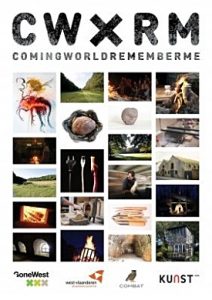
Het doorzichtige kunstwerk met de 600.000 dog tags krijgt een plaats in het paviljoen aan de start van het wandelparcours rond de land-artinstallatie. Het verenigt er letterlijk de verschillende nationaliteiten en generaties in de herdenking. Het engagement van al de betrokken mensen maakt van de land-art-installatie een grens- en generatie-overschrijdend symbool van vrede.
Tot eind mei 2018 kunt u bij uw bezoek aan het paviljoen een wandeling starten. Langs een deel van het wandeltraject hoort u op verschillende rustpunten oorlogspoëzie. De wandeling eindigt op de uitkijkbrug met een bijzonder uitzicht over de indrukwekkende land-artinstallatie.
Door het karakter van de locatie kan de volledige land-artinstallatie maar tijdelijk in het provinciaal domein De Palingbeek blijven staan. De dog-tags met de namen van oorlogsslachtoffers en peters en meters krijgen wel een definitieve plaats op het Niemandsland.
De organisatoren streven ernaar om de beeldjes na afloop van de expo op een respectvolle manier te verwijderen. Eind 2018 krijgen eerst alle peters en meters de kans om een beeldje uit de installatie op te halen. Voor de resterende beeldjes zoeken de initiatiefnemers een museale bestemming op verschillende locaties, zowel in België als in het buitenland.

Expo 600.000 beeldjes – 600.000 namen
Tot eind mei 2018
Koen Vanmechelen
Het oeuvre van kunstenaar Koen Vanmechelen is een voortdurende zoektocht naar de universele waarheid van ons bestaan. Met projecten als ‘The Cosmopolitan Chicken Project’, ‘The Open University of Diversity’ en ‘The Accident’, exploreert Koen Vanmechelen de terreinen van diversiteit en identiteit. Hij wordt hiervoor naar inhoud en verbeelding sinds jaren internationaal gerespecteerd. Het werk van Vanmechelen is een ode aan het leven en is bestemd voor de nieuwe kosmopolitische mens. Hij koestert culturele verschillen. Is ruimdenkend. Zoekt naar begrip van het andere. Leeft van constructieve confrontatie. Verlegt grenzen. Is uit op symbiose. Probeert de beladen begrippen ‘identiteit’ en ‘diversiteit’ te herdefiniëren in een wereld die ooit grenzeloos was en het ooit weer zal worden.Een filosofie die perfect aansluit bij het verhaal dat ComingWorldRememberMe wil vertellen dus.
Meer informatie op website: http://www.koenvanmechelen.be & https://www.gonewest.be/
GONEWEST: Artistieke herdenking 100 jaar Groote Oorlog in West-Vlaanderen
fleursdumal.nl magazine
More in: *War Poetry Archive, Art & Literature News, FDM Art Gallery, Galerie des Morts, Historia Belgica, Land Art, WAR & PEACE
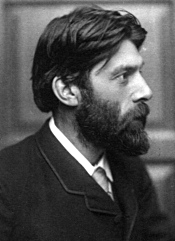
To the President of Magdalen College, Oxford
Since now from woodland mist and flooded clay
I am fled beside the steep Devonian shore,
Nor stand for welcome at your gothic door,
‘Neath the fair tower of Magdalen and May,
Such tribute, Warren, as fond poets pay
For generous esteem, I write, not more
Enhearten’d than my need is, reckoning o’er
My life-long wanderings on the heavenly way:
But well-befriended we become good friends,
Well-honour’d honourable; and all attain
Somewhat by fathering what fortune sends.
I bid your presidency a long reign,
True friend; and may your praise to greater ends
Aid better men than I, nor me in vain.
Robert Bridges
(1844-1930)
To the President of Magdalen College, Oxford
fleursdumal.nl magazine
More in: *War Poetry Archive, Archive A-B, Bridges, Robert, WAR & PEACE

On Seeing a Piece of Our Artillery Brought into Action
Be slowly lifted up, thou long black arm,
Great gun towering towards Heaven, about to curse;
Sway steep against them, and for years rehearse
Huge imprecations like a blasting charm!
Reach at that Arrogance which needs thy harm,
And beat it down before its sins grow worse;
Spend our resentment, cannon,–yea, disburse
Our gold in shapes of flame, our breaths in storm.
Yet, for men’s sakes whom thy vast malison
Must wither innocent of enmity,
Be not withdrawn, dark arm, thy spoilure done,
Safe to the bosom of our prosperity.
But when thy spell be cast complete and whole,
May God curse thee, and cut thee from our soul!
Wilfred Owen
(1893 – 1918)
On Seeing a Piece of Our Artillery Brought into Action
fleursdumal.nl magazine
More in: Archive O-P, Owen, Wilfred, WAR & PEACE
“The experiences could be understood only as being of such extremity that they stood beyond written words; it was not a failure of language, but a view that, for the individual, language, particularly written words, and the enormity of the experience were not matched.”
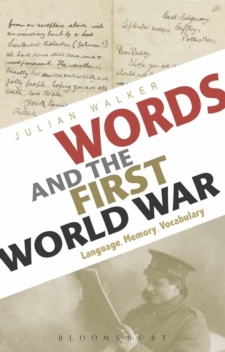 First World War expert Julian Walker looks at how the conflict shaped English and its relationship with other languages. He considers language in relation to mediation and authenticity, as well as the limitations and potential of different kinds of verbal communication.
First World War expert Julian Walker looks at how the conflict shaped English and its relationship with other languages. He considers language in relation to mediation and authenticity, as well as the limitations and potential of different kinds of verbal communication.
Walker also examines:
– How language changed, and why changed language was used in communications
– Language used at the Front and how the ‘language of the war’ was commercially exploited on the Home Front
– The relationship between language, soldiers and class
– The idea of the ‘indescribability’ of the war and the linguistic codes used to convey the experience
‘Languages of the front’ became linguistic souvenirs of the war, abandoned by soldiers but taken up by academics, memoir writers and commentators, leaving an indelible mark on the words we use even today.
Julian Walker is a writer, researcher, artist and educator. He is an Honorary Research Associate at University College, London, UK. He is the co-author of Languages and the First World War: Communicating in a Transnational War (2016), the author of The Roar of the Crowd (2016) and Trench Talk (2012) among many others. His website is www.julianwalker.net
Writes: Lexicology, First World War, Sociolinguistics and Linguistic Anthropology, World History, Heritage
Author of : Words and the First World War, Team Talk, Discovering Words in the Kitchen, Discovering Words
“This is a substantial book, dense but always accessible, covering both time and space. Gratifyingly, it sidesteps an all too common error that entraps books on words, of becoming no more than a padded dictionary.” – The Daily Telegraph
Words and the First World War
Language, Memory, Vocabulary
By: Julian Walker
Published: 28-12-2017
Format: Paperback
Edition: 1st
Extent: 416
ISBN: 9781350001923
Imprint: Bloomsbury Academic
Illustrations: 50 bw images
Dimensions: 216 x 138 mm
Prize: £14.99
fleursdumal.nl magazine
More in: *War Poetry Archive, - Book News, - Book Stories, Archive W-X, Art & Literature News, Histoire de France, Historia Belgica, History of Britain
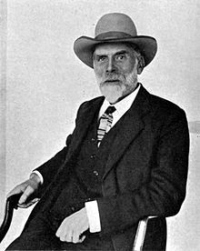
To Thos. Floyd
How fares it, friend, since I by Fate annoy’d
Left the old home in need of livelier play
For body and mind? How fare, this many a day,
The stubborn thews and ageless heart of Floyd?
If not too well with country sport employ’d,
Visit my flock, the breezy hill that they
Choose for their fold; and see, for thence you may,
From rising walls all roofless yet and void,
The lovely city, thronging tower and spire,
The mind of the wide landscape, dreaming deep,
Grey-silvery in the vale; a shrine where keep
Memorian hopes their pale celestial fire:
Like man’s immortal conscience of desire,
The spirit that watcheth in me ev’n in my sleep.
“While yet we wait for spring, and from the dry”
While yet we wait for spring, and from the dry
And blackening east that so embitters March,
Well-housed must watch grey fields and meadows parch,
And driven dust and withering snowflake fly;
Already in glimpses of the tarnish’d sky
The sun is warm and beckons to the larch,
And where the covert hazels interarch
Their tassell’d twigs, fair beds of primrose lie.
Beneath the crisp and wintry carpet hid
A million buds but stay their blossoming;
And trustful birds have built their nests amid
The shuddering boughs, and only wait to sing
Till one soft shower from the south shall bid,
And hither tempt the pilgrim steps of spring.
“In autumn moonlight, when the white air wan”
In autumn moonlight, when the white air wan
Is fragrant in the wake of summer hence,
‘Tis sweet to sit entranced, and muse thereon
In melancholy and godlike indolence:
When the proud spirit, lull’d by mortal prime
To fond pretence of immortality,
Vieweth all moments from the birth of time,
All things whate’er have been or yet shall be.
And like the garden, where the year is spent,
The ruin of old life is full of yearning,
Mingling poetic rapture of lament
With flowers and sunshine of spring’s sure returning;
Only in visions of the white air wan
By godlike fancy seized and dwelt upon.
Robert Bridges
(1844-1930)
To Thos. Floyd
fleursdumal.nl magazine
More in: *War Poetry Archive, Archive A-B, Bridges, Robert
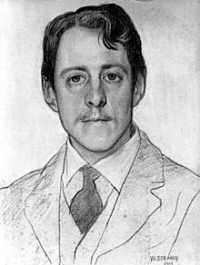
Ypres
She was a city of patience; of proud name,
Dimmed by neglecting Time; of beauty and loss;
Of acquiescence in the creeping moss.
But on a sudden fierce destruction came
Tigerishly pouncing: thunderbolt and flame
Showered on her streets, to shatter them and toss
Her ancient towers to ashes. Riven across,
She rose, dead, into never-dying fame.
White against heavens of storm, a ghost, she is known
To the world’s ends. The myriads of the brave
Sleep round her. Desolately glorified,
She, moon-like, draws her own far-moving tide
Of sorrow and memory; toward her, each alone,
Glide the dark dreams that seek an English grave.
Laurence Binyon
(1869 – 1943)
Ypres
fleursdumal.nl magazine
More in: *War Poetry Archive, Archive A-B, WAR & PEACE
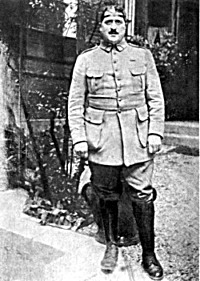
Guillaume Apollinaire
(1880 – 1918)
La fumée de la cantine
La fumée de la cantine est comme la nuit qui vient
Voix hautes ou graves le vin saigne partout
Je tire ma pipe libre et fier parmi mes camarades
Ils partirons avec moi pour les champs de bataille
Ils dormirons la nuit sous la pluie ou les étoiles
Ils galoperont avec moi portant en croupe des victoires
Ils obéiront avec moi aux mêmes commandements
Ils écouteront attentifs les sublimes fanfares
Ils mourront près de moi et moi peut-être près d’eux
Ils souffriront du froid et du soleil avec moi
Ils sont des hommes ceux-ci qui boivent avec moi
Ils obéissent avec moi aux lois de l’homme
Ils regardent sur les routes les femmes qui passent
Ils les désirent mais moi j’ai des plus hautes amours
Qui règnent sur mon coeur mes sens et mon cerveau
Et qui sont ma patrie ma famille et mon espérance
À moi soldat amoureux soldat de la douce France
Guillaume Apollinaire Poèmes à Lou
fleursdumal.nl magazine
More in: #Archive Concrete & Visual Poetry, *War Poetry Archive, Apollinaire, Guillaume, Archive A-B
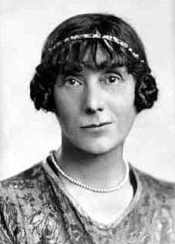
Jessie Pope
(1868 – 1941)
The Zeppelin Armada
‘To-Day, since Zeppelins are in the air,
And folks glance skywards as they go their ways,
Let us hark back a bit to an affair
That happened in Queen Bess’s sturdy days,
When the Armada, backed by Spanish lust
A fleet that floating palaces resembled
Sailed proudly forth to crush us in the dust,
While all the tremulous in England trembled.
What was the fate of those unwieldy craft ?
Our little frigates made of British oak
Harassed the mighty galleons fore and aft,
Handy to strike and shun the counterstroke.
The Great Invasion ended in defeat.
No more could Philip play the part of mocker,
The rout of the Armada was complete,
And down it went to Davy Jones’s locker.
What frigates did in 1558
May be repeated in the air to-day,
When clumsy Zeppelins may meet their fate
From aeroplanes that sting and dart away.
A well-equipped and handy air patrol
Would circumvent an aerial attack.
If London is to be the Zeppes’ goal,
It’s up to us to see they don’t go back!
Jessie Pope
fleursdumal.nl magazine
More in: *War Poetry Archive, Archive O-P, CLASSIC POETRY, WAR & PEACE
Thank you for reading Fleurs du Mal - magazine for art & literature